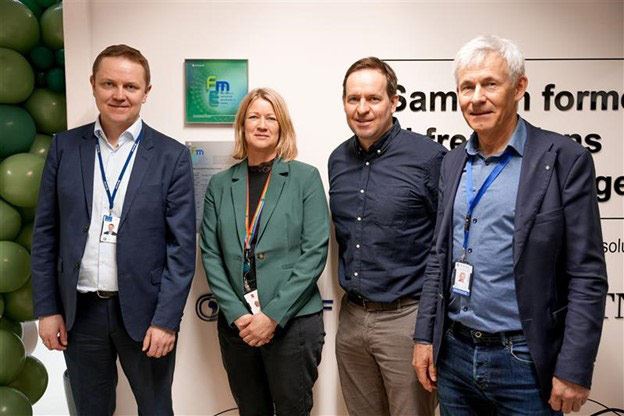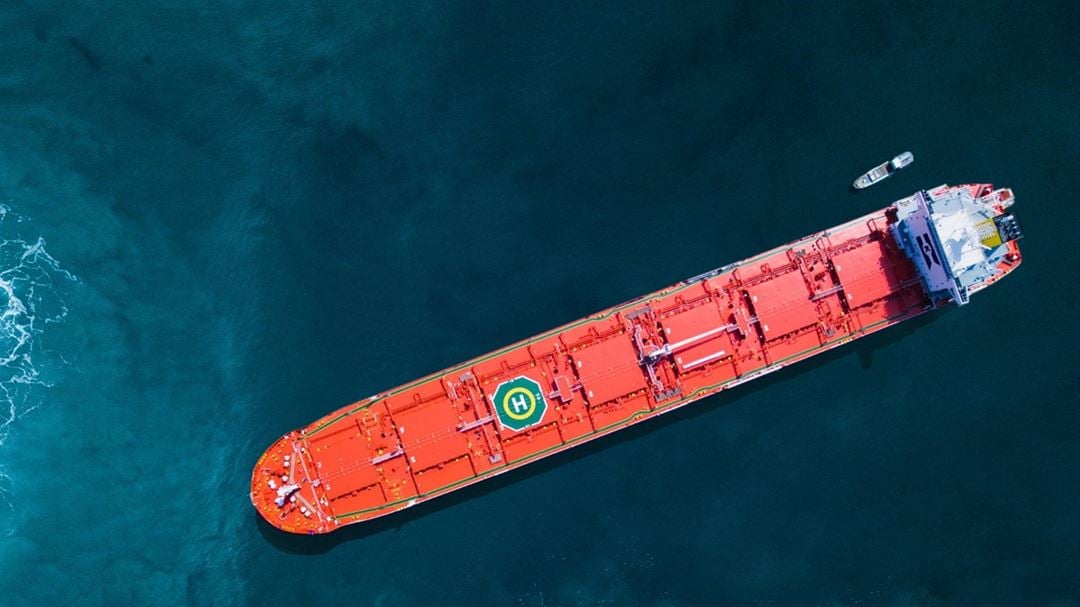FME stands for research center for environmentally friendly energy, and the center FME Maritime Energy Transition (MarTrans) is an 8-year collaborative project with 65 partners from the maritime industry and research environment. The main focus is research, innovation and education to accelerate the energy transition in shipping, while at the same time increasing value creation and exports for the Norwegian maritime industry.
With total funding from the Research Council of Norway and the industrial partners of over NOK 300 million, this will be the world's largest maritime research program of its kind. Center Director Trond Vikan Johnsen in SINTEF Ocean is looking forward to getting started.
- Shipping is well underway with the green shift. Local pollution has been greatly reduced and major cuts have been made in climate emissions per transported item during the last decade, but with increasing need for transport and an ambition for zero emissions by 2050 we still have major challenges ahead of us, says Johnsen.
Norwegian shipowners share this view, and a total of 18 shipping companies with around 450 ships in operation participate in the center. Norway has the world's fifth largest shipping fleet and can really make a difference to global emissions from the sector.
- The Norwegian Shipowners' Association’s members aim to only order ships with zero-emission technology by 2030. By 2050, all ships must be carbon neutral. It requires an ambitious investment in research and innovation, says Helene Tofte, Director of International Cooperation and Climate, Norwegian Shipowners’ Association.
FME MarTrans focus areas
The maritime sector currently accounts for about 9 percent of Norway's greenhouse gas emissions and 12 percent of global transport emissions. If we are to reduce emissions in sea transport, we must solve four main challenges:
• Environmentally friendly fuel will be expensive and scarce. Consequently, consumption must be drastically reduced through improved energy-efficiency.
• In order to be able to use the new energy carriers in a safe and efficient way, the energy systems on board must be further developed.
• Making green fuels available requires the development of supply chains and new port infrastructure.
• A sustainable transition requires new technology to be supported with knowledge in business models, environmental impact, regulations and energy system integration.
- FME MarTrans will organize much of its research and education around these areas, but will also promote innovations and piloting through shipowner-managed demo projects, says Center Director Johnsen.
A large and important tool will be the world-leading research infrastructure in the Norwegian Ocean Technology Centre that is currently under construction in Trondheim. These new laboratories for model-scale testing of ships and energy systems will be phased in during the first couple of years of FME MarTrans, giving researchers completely new opportunities to optimize ship technologies and operations.

Cooperation strengthens value creation
The maritime supply industry is one of Norway's largest export industries with 90,000 jobs across the country and an annual value creation of over NOK 150 billion. In order to maintain and strengthen competitiveness, the Norwegian cluster is dependent on being at the forefront of technology development and innovation, especially related to green solutions.
- Kongsberg Maritime is pleased to be a partner in the research center FME MarTrans. Our vision is to shape the maritime future based on new technology, energy-efficient solutions and digitalization. Through this collaboration we will build knowledge, and be part of a network that works to develop joint solutions, says Bjørn Jalving, CTO, Kongsberg Maritime.
Cooperation across the maritime value chain is a Norwegian tradition and recipe for success. In FME MarTrans, shipping companies, shipbuilders, technology suppliers, ports, energy companies, insurance and classification societies meet to collaborate with universities and research institutes to find solutions to the most demanding challenges within the maritime industry.
- This partnership highlights a dedication to research and innovation for green shipping. The center will play a central role when maritime players navigate the energy transition and transform R&D into commercial advantages on a global scale. We look forward to lead the way to maritime green shift in collaboration with SINTEF Ocean and all partners in FME MarTrans, says Tomas Tronstad, Director of Maritime R&D, DNV.
FME MarTrans will be formally established, and researchers recruited, during the autumn of 2024, and from the beginning of 2025 the Center will be at full speed towards green shipping.

Partners
Research institutions: SINTEF Ocean, SINTEF Energy, SINTEF Industry, SINTEF Nordvest, NTNU, NHH, UiT, Chalmers (SE), DTU (DK), VTT (FI), IIASA (AUT), NTUA (GRE).
Industry and public partners: Amon Maritime, AQS, Bergen Engines, Brunvoll, Corvus, DNV, Eitzen Rederi, Elinett, Fjord Base, Fjuel, Frøy, Gard, Gasnor, GC Rieber Shipping, Global Centre for Maritime Decarbonisation, Glocal green, GreenH, Grieg Star, HAV Group, Havila Shipping, Hydrogenious LOHC Maritime, Hyds, Höegh Autoliners, Island Offshore, Jotun, K.G. Jebsen Skipsrederi, Klaveness, Kongsberg, Kristiansand Havn, Miljødirektoratet, Moen Marin, Marine and Port Authorities of Singapore, Narvik Havn, Navtor, North Sea Container Line, Norske Havner, Oslo Havn, Plug, Rederiforbundet, SFL Corp, Sirius Design & Integration, Sjøfartsdirektoratet, Skarv Shipping Solutions, Solvang, Teco2030, Trondheim Havn, Trøndelag fylkeskommune, Ulmatec Pyro, Ulstein, Utkilen, Vard Group, Yara Marine, Østensjø Rederi.


